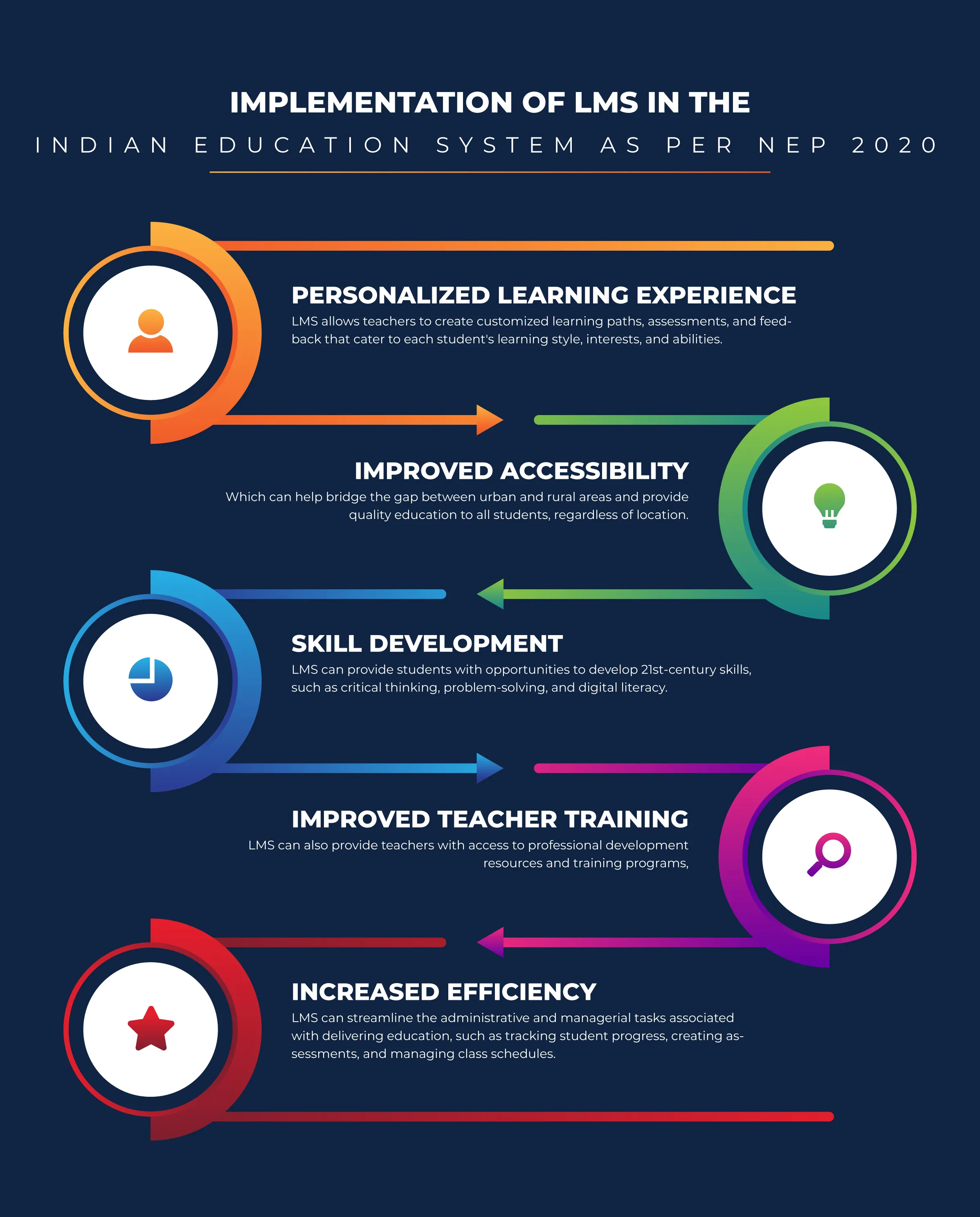
The National Education Policy (NEP) 2020 aims to revolutionize the education system in India and provide quality education to all students. The use of technology, including learning management systems (LMS), is an essential part of this reform. LMS is a technology platform that enables the management, delivery, and tracking of educational courses and training programs.

The implementation of LMS in the Indian education system as per NEP 2020 can bring numerous benefits, such as:
Personalized learning experience: LMS allows teachers to create customized learning paths, assessments, and feedback that cater to each student's learning style, interests, and abilities. This can result in improved student engagement and motivation, and increased learning outcomes.
Improved accessibility: LMS provides students with access to a wide range of online resources and courses, which can help bridge the gap between urban and rural areas and provide quality education to all students, regardless of location.
Skill development: LMS can provide students with opportunities to develop 21st-century skills, such as critical thinking, problem-solving, and digital literacy.
Improved teacher training: LMS can also provide teachers with access to professional development resources and training programs, which can enhance their teaching skills and improve the quality of education.
Increased efficiency: LMS can streamline the administrative and managerial tasks associated with delivering education, such as tracking student progress, creating assessments, and managing class schedules.
However, the implementation of LMS in the Indian education system as per NEP 2020 also poses several challenges, such as:
Lack of digital literacy among teachers and students: Many teachers and students may not be familiar with technology and the use of LMS, which can limit their effectiveness.
Limited access to technology in rural areas: There may be limited access to technology, particularly in rural areas, which can hinder the implementation of LMS.
Resistance to change: Teachers and students may resist the adoption of LMS, as it requires a shift in traditional teaching and learning methods.
Cost: Implementing LMS can be expensive, and schools and colleges may lack the necessary budget to invest in the technology.
Technical difficulties: There may be technical difficulties, such as server crashes, which can hinder the effectiveness of LMS.
In conclusion, the implementation of LMS in the Indian education system as per NEP 2020 can bring numerous benefits, such as a personalized learning experience, improved accessibility, skill development, and increased efficiency. However, it is important to address the challenges associated with the adoption of LMS, such as lack of digital literacy and limited access to technology, to ensure its effective implementation and success. The government, schools, and colleges must work together to ensure the widespread adoption of LMS and the successful implementation of NEP 2020.
#NEP2020 #LMS #EducationReform #EduTech #OnlineLearning #PersonalizedLearning #SkillDevelopment #AccessibleEducation #DigitalLiteracy #OnlineEducation #TeacherTraining #InnovativeEducation #QualityEducation #StudentSuccess #21stCenturySkills #StudentEngagement #EnhancingLearningOutcomes #EmpoweringTeachers #DigitalTransformation #InclusiveEducation #EquitableEducation #FuturisticEducation #TechnologyInEducation #LearningWithTechnology #ImprovingEducationWithTech